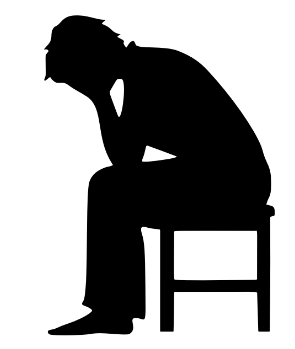Depression: A Crippling Disease That Stems From the Mind

March 1, 2023
Depression is a common mental health condition that causes a persistent feelings of sadness and changes in how you think, sleep, eat and act. There are several different types of depression. Depression is treatable — usually with therapy or some form of medication. Seeking medical help as soon as you have symptoms is recommended.
Some conditions are associated with higher rates of depression. These include many common issues such as:
- Stroke
- Multiple sclerosis.
- Seizure disorders.
- Chronic pain
And some more commonly found symptoms:
- Troubled childhood
- Grief
- Traumatic Events
- Anxiety disorders
- And for some, it just naturally occurs at certain ages or during certain events.
If you begin to notice yourself feeling down for at least two weeks, with any of these conditions in your background, seek therapy and medical help.
The effects of depression can vary slightly depending on the type and can range from mild to severe. Normally, this includes:
- Feeling extremely sad, hopeless, or worried. Children and teens with depression may be irritable rather than sad.
- Not enjoying things that used to bring joy.
- Being easily irritated or frustrated.
- Eating too much or too little, which may result in weight gain or weight loss.
- Trouble sleeping (insomnia) or sleeping too much (hypersomnia).
- Having low energy or fatigue.
- Having a difficult time concentrating, making decisions, or remembering things.
- Experiencing physical issues like headache and stomachache.
- Having thoughts of self-harm or suicide.
If you have any of these symptoms, you may have to seek mental help. Many people have lost their lives, friends, or jobs because of depression.
Depression is one of the most common, and most treatable, mental health conditions. Approximately 80% to 90% of people with depression who seek treatment eventually respond well to it. Some treatment options include:
Psychotherapy: Psychotherapy (talk therapy) involves talking with a mental health professional. Your therapist helps you identify and change unhealthy emotions, thoughts, and behaviors.
Medication: Prescription medicine called antidepressants can help change the brain chemistry that causes depression. There are several different types of antidepressants, and it may take time to figure out the one that’s best for you.
There are also things you can do at home to help improve depression symptoms, including:
Getting regular exercise.
Getting quality sleep (not too little or too much).
Eating a healthy diet.
Avoid alcohol and drugs, which lead to depression
Spending time with people you care about.
In conclusion, depression is an impactful but treatable disease that doesn’t impact you as a sickness would, it affects your mental state and how you interact with people. Getting help for depression is very important if you have the symptoms listed earlier. The consequences of leaving this disorder unchecked could go so far as ending your own life or harming yourself. Many people have lost loved ones or friends because of a lack of depression treatment–some readers may relate to this on a personal level, having that happen to them as well. Depression is a very impactful disorder in our current society, and people should treat it as such, and always seek medical attention if they show any signs that relate to it.
Work Cited
“Depression: Causes, Symptoms, Types & Treatment.” Cleveland Clinic, 13 January 2023, https://my.clevelandclinic.org/health/diseases/9290-depression. Accessed 7 February 2023.




